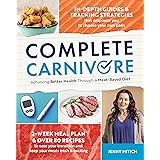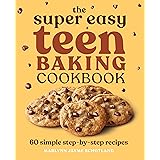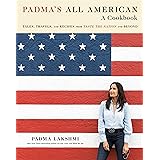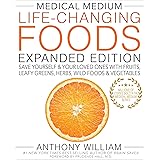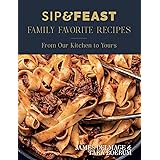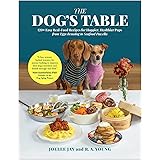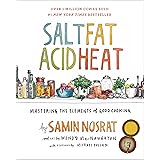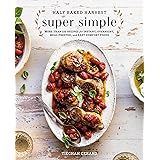The pursuit of muscle gain often conjures images of endless chicken breasts and whey protein shakes. For those dedicated to a plant-based lifestyle, this conventional wisdom can present a significant hurdle, leading to concerns about protein intake and overall nutrient adequacy. Many aspiring vegan athletes grapple with the misconception that building a muscular physique without animal products is inherently difficult, if not impossible. The challenge then becomes not just what to eat, but how to strategically combine plant foods to maximize anabolic potential and recovery.
As Dr. Anthony Balduzzi discusses in the accompanying video, forging a robust vegan muscle building plan is entirely achievable. It demands a nuanced understanding of plant-based nutrition, moving beyond simple food swaps to a holistic approach that prioritizes protein density, nutrient bioavailability, and caloric sufficiency. This comprehensive guide will expand upon Dr. Balduzzi’s insights, delving deeper into the science and practical application of optimizing your vegan meal plan for muscle gains.
Setting Your Protein Target: The Foundation of Vegan Muscle Growth
The bedrock of any effective muscle building regimen, regardless of dietary preference, is a meticulously calculated protein intake. For most individuals actively seeking hypertrophy, aiming for approximately 0.75 to 1 gram of protein per pound of body weight is a scientifically supported target. This range often translates to 100-150 grams of protein daily for the average active adult, a formidable, yet entirely attainable, goal for plant-based eaters.
Distributing this protein strategically throughout the day is paramount. Dr. Balduzzi advocates for consuming 30 to 50 grams of protein per meal, spread across three to four meals daily. This approach ensures a consistent supply of amino acids, the building blocks of muscle, supporting continuous muscle protein synthesis (MPS) and minimizing muscle breakdown. Unlike many animal products that offer a concentrated “pure protein” source, plant-based foods often provide protein alongside healthy fats and complex carbohydrates. This necessitates a more strategic combination of ingredients to reach those ambitious protein targets, a practice that serendipitously results in meals that are exceptionally nutrient-dense and flavorful.
Mastering High-Protein Vegan Breakfasts
Kickstarting your day with a protein-rich meal sets a powerful anabolic tone. Dr. Balduzzi highlights several excellent options for a high-protein vegan breakfast, each offering unique benefits and ease of preparation.
The Anabolic Plant-Based Smoothie
A high-protein breakfast smoothie is a game-changer for its convenience and nutritional punch. The key lies in selecting a high-quality, blended plant-based protein powder to ensure a complete amino acid profile. Look for blends incorporating pea, rice, and hemp proteins, as these collectively provide all essential amino acids required for muscle repair and growth. Dr. Balduzzi’s own “Super Fuel” is an example of a well-formulated option, delivering 20 grams of protein along with 40+ vitamins, minerals, superfoods, and probiotics, all with less than 2 grams of sugar.
To further amplify protein and calorie density, integrate ingredients like two tablespoons of hemp seeds, one tablespoon of chia seeds, and one to two tablespoons of organic peanut or almond butter. Blended with almond milk and perhaps some wild blueberries for antioxidants, this concoction can yield 40-50 grams of protein and 400-500 calories. For additional caloric intake, especially crucial for muscle gain, healthy fats such as a drizzle of olive oil, a teaspoon of coconut oil, or simply increasing the nut butter portion can be effortlessly incorporated. This liquid meal offers rapid nutrient absorption without causing digestive distress, an ideal start to a demanding day.
The Robust Tofu Scramble
For those who prefer a savory, texture-rich breakfast, a high-protein tofu scramble is an exceptional choice. Extra-firm tofu, crumbled and seasoned with nutritional yeast, black salt (for an eggy flavor), turmeric (for color), and a medley of vegetables like spinach and bell peppers, forms a hearty base. Serving this scramble atop two slices of sprouted organic bread, such as Ezekiel bread (which boasts 5 grams of protein per slice), immediately contributes 10 grams of protein before considering the tofu.
A typical tofu scramble can provide upwards of 20 grams of protein, pushing your breakfast to a respectable 30 grams. Augmenting this with sautéed greens, a side of chickpeas, or a dollop of hummus will effortlessly elevate the protein content to the desired 40-gram mark. This option delivers substantial micronutrients and fiber, promoting satiety and sustained energy.
Convenient High-Protein Overnight Oats
Overnight oats represent the pinnacle of breakfast convenience, requiring minimal morning preparation. Combine one cup of organic rolled oats with two tablespoons each of hemp seeds and chia seeds, one tablespoon of peanut butter, and enough almond milk to reach your desired consistency. Allowing this mixture to hydrate overnight in the refrigerator transforms it into a delicious, nutrient-dense meal.
This simple combination provides a rich source of complex carbohydrates, fiber, and an impressive protein count. The addition of hemp and chia seeds significantly boosts the protein and healthy fat content, ensuring a balanced macronutrient profile. For those who prefer a warm meal, stovetop preparation with the same protein-spiking ingredients is equally effective, proving that a high-protein vegan meal plan for muscle gains can be both flexible and delicious.
Strategic Vegan Lunches for Sustained Gains
Maintaining a consistent protein intake throughout the day is critical for continuous muscle repair and growth. Ideally, lunch should follow breakfast by approximately four hours to keep the anabolic engine running efficiently.
The Mighty Nut Butter Sandwich
A seemingly simple peanut or almond butter sandwich can be transformed into a high-protein muscle-building meal. Utilizing two slices of Ezekiel bread loaded generously with nut butter can provide around 25 grams of protein. Pairing this with a side of fresh sprouts, steamed green beans, or other sautéed vegetables adds micronutrients and fiber, inching the total protein closer to 30 grams. This accessible meal exemplifies how plant-based components can be combined for impressive nutritional outcomes.
Navigating Soy: The Tempeh Advantage
While various faux meats are available, Dr. Balduzzi rightly cautions against their overconsumption due to often highly processed ingredients and unhealthy seed oils. Organic, fermented soy, particularly tempeh, stands out as a superior plant-based protein. Tempeh, a fermented soybean cake, offers a dense protein source and boasts enhanced digestibility due to the fermentation process. This process reduces antinutrients like phytic acid and enzyme inhibitors, making its nutrients more bioavailable and reducing potential digestive discomfort.
Tempeh can be sliced and pan-fried in coconut or avocado oil, then incorporated into sandwiches, salads, or grain bowls. Its firm texture and ability to absorb marinades make it incredibly versatile. Prioritizing organic and fermented soy helps mitigate concerns about pesticide residues and estrogenic compounds often associated with non-organic or unfermented soy products. For individuals building muscle on a vegan diet, embracing fermented soy like tempeh can significantly boost protein intake without compromise.
Crafting Nutrient-Rich Buddha Bowls
Buddha bowls are a customizable powerhouse, perfect for lunch. A base of cooked chickpeas, roasted root vegetables like sweet potato, a generous portion of mixed greens, and a sprinkle of sprouted pumpkin seeds creates a foundation of complex carbohydrates, fiber, and protein. Adding cooked beans, sliced avocado, and a flavorful dressing or hot sauce elevates the bowl’s palatability and nutritional density.
Such a bowl is not only rich in protein but also abundant in healthy fats and complex carbohydrates, making it a complete muscle-building meal. These bowls can easily reach 500-600 calories, providing substantial energy for continued activity and muscle repair. If caloric or protein targets need a boost, a half scoop of plant-based protein powder mixed into a small shake on the side offers an effortless solution. Moreover, always consider adding a side of fruit, like an organic apple, to any meal for an extra 100 calories, beneficial fiber, and essential vitamins.
Fueling Between Meals: High-Impact Vegan Snacks
Incorporating strategic snacks between lunch and dinner is a smart way to maintain a caloric surplus for muscle growth and keep protein levels elevated. Snacks can also serve as an excellent pre-workout fuel.
Mindful Plant-Based Protein Bars
For on-the-go convenience, quality plant-based protein bars are invaluable. Brands like Garden of Life, GoMacro, or Lara Bars offer certified vegan, organic options that blend various protein sources. When selecting a bar, scrutinize the ingredient list. Dr. Balduzzi advises avoiding bars with more than 10 grams of sugar, especially those listing cane sugar or corn syrups high on the list. Opt for bars naturally sweetened with dates or other fruits, prioritizing whole-food ingredients over highly processed fillers. These bars provide a quick hit of protein and energy, ideal for bridging meal gaps.
The Power of Nuts and Fruit
Nuts are a caloric and nutrient-dense powerhouse, providing healthy fats, protein, and essential minerals. Macadamia nuts, walnuts, and pistachios are particularly beneficial, offering an abundance of monounsaturated and polyunsaturated fats that fuel workouts and support overall health. A half-cup serving of mixed nuts can significantly contribute to your daily protein and calorie goals without inducing excessive digestive stress, a common concern with high-fiber plant foods.
Pairing nuts with organic fruit, such as berries, apples, pears, kiwis, or oranges, creates a balanced snack. The fruit provides quick-digesting carbohydrates for energy and vital antioxidants, while the nuts offer sustained energy and satiety. This combination is particularly effective for individuals who struggle to consume enough calories due to the high fiber content of a plant-based diet, as nuts provide a concentrated source of energy in a small volume.
Power-Packed Vegan Dinners: Building Muscle Overnight
Dinner represents a prime opportunity to load up on muscle-building nutrients, providing the body with sustained fuel for nocturnal repair and growth. The plant-based culinary world offers a myriad of high-protein, delicious options.
Hearty High-Protein Vegan Chili
A chili brimming with a variety of beans—black beans, kidney beans, cannellini beans—is a staple for a vegan muscle building plan. Concerns about lectins, antinutrients present in legumes, can be effectively mitigated through proper preparation. Soaking beans for at least five to six hours, or preferably overnight, and then discarding the soaking water, helps reduce lectin content. Subsequently, cooking beans in a pressure cooker or Instant Pot uses a combination of heat and pressure to deactivate remaining lectins, rendering them safe and highly digestible.
This method transforms beans into a cornerstone of a muscle-building diet, providing complex carbohydrates, fiber, and a substantial amount of protein. A well-crafted vegan chili, enriched with various vegetables and spices, offers a satisfying and nutrient-dense meal that supports muscle synthesis through the night.
Quinoa: The Complete Protein Seed
Quinoa, though often used like a grain, is technically a seed and stands out as one of the few plant-based complete proteins, containing all nine essential amino acids. Its versatility makes it an ideal base or side dish for virtually any meal. Cooked in a rice cooker with vegetable stock, quinoa offers a fluffy, nutritious foundation that complements dishes like chili or tempeh beautifully. It significantly contributes to protein targets and provides complex carbohydrates for sustained energy.
Exploring Lentil Dahl
Indian cuisine offers a treasure trove of high-protein vegan dishes, with lentil dahl being a standout. Made from various types of lentils, dahl is a thick, spiced stew often served alongside quinoa or rice. Whether it’s a vegan split pea soup or a more complex lentil mash infused with aromatic Indian spices, dahl delivers an abundance of plant-based protein and fiber. This dish is not only delicious but also incredibly nutritious, making it an excellent addition to any robust vegan meal plan for muscle gains.
Beyond Macronutrients: Essential Micronutrients for Vegan Athletes
While protein and calories are paramount, optimizing micronutrient intake is equally vital for overall health, performance, and effective muscle building on a vegan diet. Dr. Balduzzi emphasizes several critical considerations.
Boosting Iron Absorption
Iron is crucial for oxygen transport in the blood, a function directly tied to exercise performance and recovery. Plant-based diets provide non-heme iron, which is less readily absorbed than heme iron found in animal products. To maximize absorption, pairing iron-rich plant foods like dark green leafy vegetables (spinach, Swiss chard, rainbow chard) and beans with Vitamin C sources is highly effective. Sautéing chard with olive oil, garlic, and a squeeze of lemon juice not only enhances flavor but also significantly increases iron bioavailability. This simple culinary trick ensures your body can efficiently utilize the iron needed for robust red blood cell production and optimal athletic function.
Cultivating Gut Health with Probiotics
A healthy gut microbiome is fundamental to nutrient absorption and overall well-being. A common challenge on a plant-based diet, particularly when not prepared correctly, can be digestive discomfort like bloating or gas. Incorporating probiotic-rich fermented foods like kimchi (fermented cabbage with spices) or sauerkraut can dramatically improve gut function. Regular consumption of a couple of tablespoons with meals supports a thriving gut flora, leading to better digestion, enhanced nutrient uptake, and reduced digestive issues, thereby improving the sustainability and effectiveness of your vegan muscle building plan.
Holistic Nutrient Considerations
While the video focuses on direct meal strategies, it is prudent for anyone on a vegan muscle building plan to ensure adequate intake of other key nutrients. Vitamin B12, often supplemented due to its primary source being animal products, is essential for nerve function and red blood cell formation. Vitamin D, crucial for bone health and immune function, may also require supplementation, especially for those with limited sun exposure. Additionally, incorporating flaxseeds, chia seeds, and walnuts regularly ensures a good intake of Omega-3 fatty acids, vital for reducing inflammation and supporting cardiovascular health.
Strategic Indulgences: Satisfying Cravings While Gaining
A sustainable and enjoyable meal plan often includes room for mindful indulgences. When strategically timed, these can even support your muscle-building goals and psychological well-being.
Dark chocolate, particularly varieties with a high cocoa content (70% or more), offers antioxidants and can be a satisfying treat. Consuming it after training is a smart move, as the carbohydrates and sugars can help spike insulin, which plays a role in shuttling nutrients to muscle cells and reducing cortisol (stress hormone) levels post-workout. This supports recovery and helps to initiate muscle repair processes.
Similarly, low-sugar coconut ice cream bars can be a delicious and beneficial addition for increasing caloric intake. These treats offer an extra 100-200 calories and provide beneficial medium-chain triglycerides (MCTs) from coconut. MCTs are readily absorbed and used for energy, making them an excellent fuel source without being stored as fat. Incorporating such thoughtful indulgences makes adherence to a rigorous vegan meal plan for muscle gains more enjoyable and sustainable in the long run.
Ultimately, a successful vegan muscle building plan hinges on strategic food choices, meticulous meal preparation, and a comprehensive understanding of plant-based nutrition. It’s a journey that prioritizes nutrient density, optimal digestion, and consistent protein intake, proving that a powerful, muscular physique can indeed be cultivated entirely through the richness of the plant kingdom.



